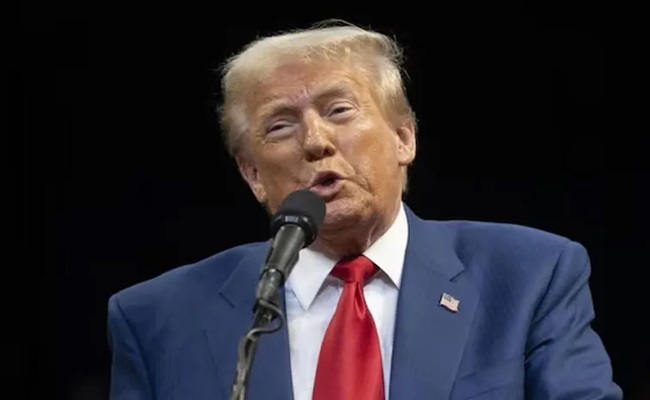
US President Donald Trump on Wednesday announced that he has signed an executive order imposing an additional 25 per cent tariff on imports from India, citing the country’s continued purchase of Russian oil.
The White House said the decision is aimed at strengthening measures taken under earlier sanctions against Russia following its actions in Ukraine. The US President had announced a 25 per cent tariff on India last week.
The order states that India is directly or indirectly importing oil from Russia, which the US considers a threat to its national security and foreign policy.
"Accordingly, and as consistent with applicable law, articles of India imported into the customs territory of the United States shall be subject to an additional ad valorem rate of duty of 25 per cent," the order reads.
The new tariffs will be applied to all eligible Indian goods entering the US from 21 days after the order’s signing, except for shipments already in transit before the deadline and cleared before September 17.
"Subject to section 3 of this order, this rate of duty shall be effective with respect to goods entered for consumption, or withdrawn from warehouse for consumption, on or after 12.01 a.m. Eastern Daylight Time 21 days after the date of this order, except for goods that (1) were loaded onto a vessel at the port of loading and in transit on the final mode of transit prior to entry into the United States before 12.01 a.m. Eastern Daylight Time 21 days after the date of this order; and (2) are entered for consumption, or withdrawn from warehouse for consumption, before 12.01 a.m. Eastern Daylight Time on September 17," the order added.
These duties will be in addition to existing tariffs unless the goods fall under certain exemptions, including specific categories outlined in earlier trade executive orders.
Goods subject to this order must also follow strict customs rules, including being admitted into US foreign trade zones under "privileged foreign status".
Trump has retained the authority to modify the order based on changing circumstances, retaliation from affected countries, or significant policy shifts by Russia or India.
The order also directs the US Commerce Department, State Department, Treasury, and other agencies to monitor other countries’ oil trade with Russia and recommend similar actions, if necessary.




1769611804.png)









